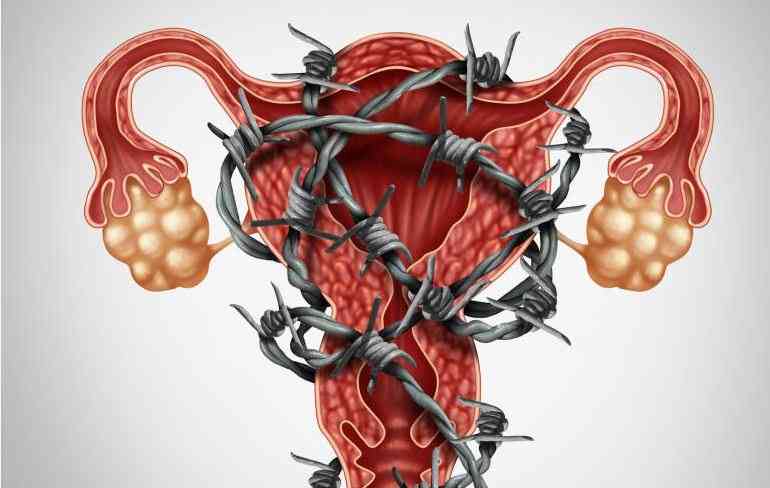
You’re not pregnant and you haven’t gained weight, but you have a bloated belly. So what’s going on?
Whether it’s a bout of holiday tummy, heartburn after a heavy meal, or just occasionally feeling bloated, digestive trouble is one of the top five reasons we visit our Family doctor.
Figures show 70% of people suffer regularly from belly woes, with Irritable Bowel Syndrome (IBS), acid reflux and plain old constipation three of the most common causes.
But research by the Whole grain Goodness campaign last year suggested almost half of us aren’t comfortable talking about our belly and bowel health, which can mean we delay getting help and relief.
Here are five common causes behind why you have a bloated stomach:
What are the symptoms of a bloated stomach?
1. Irritable bowel syndrome
Could be the cause if: You’ve been bloated on and off for a long time and have also experienced symptoms including pain, constipation and/or bouts of diarrhoea.
A common bowel condition, IBS is a functional disorder, which means there’s nothing wrong with the structure of the bowel itself, but the way the gut works is abnormal.
Peter Whorwell, professor of medicine and gastroenterology at the University of Manchester, says: “We think the gut is over-sensitive in IBS sufferers so its normal processes cause the symptoms.”
Bloating is one of the most disruptive side effects of IBS. Some women go up a couple of dress sizes and even need different clothes depending on whether or not they are bloated.
For many, it tends to worsen towards the evening, so it can disrupt your social life.
There’s no cure for IBS, but you can manage the symptoms.
“Cutting out cereal fibre eases symptoms by between 30% and 40% in the majority of sufferers,” says Professor Whorwell.
This means avoiding whole meal bread, oats, muesli, digestive biscuits, cereal bars and all breakfast cereals other than Rice Krispies, but white bread, cakes, cream crackers and most biscuits are fine.
Try doing this for three months to see if it helps. Probiotics may also ease symptoms - Holland and Barrett stock these chewable probiotic tablets .
You can also try Activia yoghurts, as the probiotic strain they contain has been shown to help IBS - Sainsbury's is currently offering 80p off packs of 4 Activia yoghurts .
You could also try a supplement such as BioCare Acidophilus and it’s worth seeing your GP.
2. Flatulence
Could be the cause if: You are passing a lot of wind, but don’t notice any other symptoms.
We all experience flatulence from time to time – it’s perfectly normal to do so up to 15 times a day – and sometimes you may not even notice that you are doing it.
While there’s no medical definition of excessive flatulence, if it’s bothering you and makes life awkward or feels uncomfortable, there are steps you can take to reduce it.
Try cutting down on foods that are high in non-absorbable carbs. Common culprits include beans and pulses, broccoli, cabbage, prunes and apples, and foods containing the sugar substitute sorbitol.
These tend to be digested very slowly and can release small amounts of sulphur gas while they pass through the gut.
Nutrition consultant Ian Marber says: “Eat food slowly and remember to chew. Without chewing, food is more likely to pass into the gut partially broken down and there’s a higher chance it will ferment and produce gas.”
Be aware that, occasionally, an underlying health condition – including those that are listed here – could also be causing flatulence.
3. Coeliac disease
Could be the cause if: You often feel tired; you’ve lost weight for no apparent reason; you are suffering from abdominal pain.
Coeliac disease is an adverse reaction to gluten, which is found in wheat, barley and rye and all foods containing them – everything from pasta and bread to pies and some gravies and sauces.
It is an autoimmune condition where the body mistakes substances in gluten for a threat and attacks them, leading to damage to the surface of the small bowel, which then affects your ability to absorb nutrients from food.
It used to be mainly diagnosed in children, but it’s now known people can go undiagnosed into middle age.
If you have these symptoms, see your doctor and ask to have a blood test for coeliac disease. National Institute for Health and Clinical Excellence guidelines state that anyone with bloating and other IBS-type symptoms should be tested for it.
If you’re diagnosed, you’ll feel better once you start avoiding all foods containing gluten.
4. Hormonal fluctuations
Could be the cause if: You are premenstrual or in the early stages of pregnancy.
During pregnancy, and just before your period, levels of the hormone progesterone are raised.
This can slow down gut motility or movement, which means food passes more slowly through the body, leading to bloating and possibly constipation.
But you can beat the bloat. Exercise can help improve gut motility and walking for 30 minutes a day could be enough to make the difference.
Also, drink plenty of fluids and eat lots of fruit, vegetables and whole grains to avoid constipation.
5. Ovarian cancer
Could be the cause if: Bloating is persistent and you have other symptoms such as a perpetual feeling of fullness and abdominal pain.
The symptoms of ovarian cancer tend to be quite vague, which is often why it’s diagnosed late when it’s harder to treat, so it’s important to be aware of potential signs.
Target Ovarian Cancer chief executive Annwen Jones says: “Key symptoms are bloating that is persistent rather than coming and going and increased abdominal size. Look out for persistent and frequent abdominal pain, difficulty eating and urinary symptoms.
“It’s unlikely your symptoms are caused by a serious problem, but it’s important to be checked out.”
Learn your triggers knowing what sets off your tummy flare-ups can help reduce their frequency. Buscopan IBS Relief has created a free ‘food diary’ app which can help you identify your food and stress triggers.
Slash stress levels “Research shows stress can go straight to your stomach, which is why anti-depressants are used for some people with resistant IBS symptoms,” says Mr West. “Other drug-free methods are worth trying first, such as hypnotherapy, relaxation techniques and looking at ways to manage your stress day-to-day.”
Boost your good bacteria levels starting your day with a daily probiotic drink or supplement can raise your gut’s good bacteria level, which can keep your digestive system healthy and could help ease any discomfort.
Eat early to avoid heartburn Acid reflux tends to strike at night when you’re lying down, so avoid eating later than 8pm. Try sleeping with an extra pillow to help reduce the backflow of acid and taking a tablet such as Nexium Control which blocks acid production.
Up your fluid intake when it comes to fighting constipation, eight glasses of fluid a day can help by flushing waste out of your system and reducing water retention. And the good news is any liquid will do. “We used to think it had to be water, but we now believe any drink, even tea and coffee is fine,” says Mr West.
Try the low FODMAP diet. Only recently devised, this has helped many people with IBS, although it’s quite restrictive and can be difficult to follow. It involves avoiding foods – in particular fruit and veg – that contain fermentable sugars known as FODMAPs. These feed the bad bacteria in your gut, releasing the gas that causes uncomfortable bloating, stomach pain and diarrhoea for some. FODMAP foods include onions, garlic, cauliflower, apples and cabbage. But make sure you get the advice of a registered dietitian first to ensure you don’t miss out on important nutrients.
When should I worry?
Although most digestive issues are down to uncomfortable but not life-threatening conditions such as IBS or heartburn, some symptoms can indicate more serious conditions such as bowel cancer – especially if you’re over 50.
Consultant general and colorectal surgeon Mr Nick West advises: “See your family doctor immediately if you experience any of the following ‘red flag’ warning symptoms:
A persistent change in bowel habit (constipation, diarrhoea or both)
Any lumps or bumps around your bottom or stomach
Bleeding from your bottom
Unexplained weight loss
New and persistent bloating should always be checked in women over 45 to rule out ovarian cancer
 The Standard Group Plc is a multi-media organization with investments in media platforms spanning newspaper print
operations, television, radio broadcasting, digital and online services. The Standard Group is recognized as a
leading multi-media house in Kenya with a key influence in matters of national and international interest.
The Standard Group Plc is a multi-media organization with investments in media platforms spanning newspaper print
operations, television, radio broadcasting, digital and online services. The Standard Group is recognized as a
leading multi-media house in Kenya with a key influence in matters of national and international interest.










